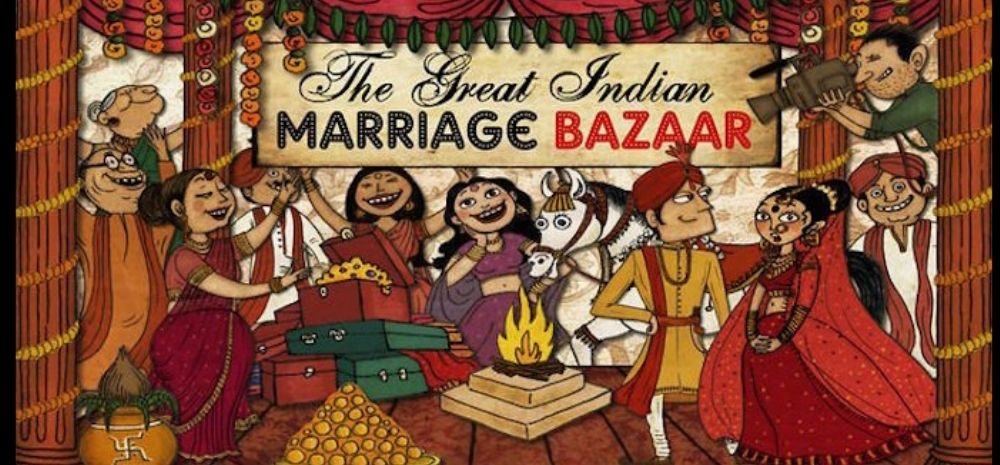A new Bill introduced by Congress MP Jasbir Singh Gill in the Lok Sabha proposes to fix a limit on the number of guests invited and dishes served at weddings in the state.

Rationale
The bill explained, “These days, it has become fashionable to spend like feudals on special occasions such as marriages and festivals.
The guest list is very long and the food menu layout is vast which leads to lot of wastage.
Not only this, a lot of wastage occurs at the time of distribution of marriage cards or post-wedding gifts.
Similarly, a lot of wastage occurs on festivals due to practices of exchanging gifts. That also deserves significant attention.”
Donate to charity instead
The Prevention of Wasteful Expenditure on Special Occasions Bill 2020 also seeks to put a cap on the amount spent on gifts to the newly-weds to check “wasteful expenditure”.
It wants the amount to instead be donated to the poor, needy, orphans or weaker sections of the society or to NGOs.
“On weddings, practice of a vast food layout, decoration, bands, music and number of guests invited has become a status symbol and a symbol of show-off.”
Over the top gifts
“Analogously, on festivals thoughtless exchange of gifts is very wasteful”, it continued.
“Festivals must be a time to remember the almighty and do good to society. But often, the core concept of festivals get lost in the show-off that many do, by exchanging fancy gifts.
That money could instead be donated and smaller gifts distributed,” it adds.
Financial burden
The MP said that the Bill seeks to rein in the culture of extravagant weddings that imposes a significant financial burden especially on the bride’s family.
“I came across stories of how people had to sell their plots, properties and opt for bank loans to solemnize marriages in a lavish manner.
The cut in wasteful expenditure on marriages could go a long way in checking female foeticide, as a girl child then would not be seen as a burden,” said Gill.
Personal experience
He came up with the idea after attending a wedding in Phagwara in 2019.
“There were dishes in as many as 285 trays. I noticed that no one had taken out even a spoonful from many as 129 such trays. It all went to waste,” he shared.
Restrictions proposed
The Bill wants the guests invited from both bride and groom’s families to be fixed at 100.
The number of dishes served should not exceed 10; and the worth of gifts should not exceed Rs 2,500.
Further, instead of extravagant gifts, donations should be made for the poor, needy, orphans or weaker sections of the society or to NGOs.
“I implemented this in my family first. There were 30 to 40 guests when I married off my son and daughter this year,” said Gill.
This is not the first attempt that has been made to curtail “big fat Indian wedding” culture by bringing it within the scope of the law.
Prevention and prohibition on the extravagant expenses bill
Earlier, BJP’s Gopal Chinayya Shetty, the Lok Sabha MP from Mumbai North, had in December 2017 introduced a bill seeking “prevention and prohibition on the extravagant expenses incurred on marriages”.
The Bill sought to ensure “prevention and prohibition of sheer extravagance and unlimited expenditure being incurred on marriages and related ceremonies in various parts of the country and for matters connected therewith or incidental thereto”.
The Marriages (Compulsory Registration and Prevention of Wasteful Expenditure) Bill
Before that in February 2017, Congress MP Ranjeet Ranjan had introduced The Marriages (Compulsory Registration and Prevention of Wasteful Expenditure) Bill which capped the number of guests to be invited and dishes to be served.
It also sought to make those spending above Rs 5 lakh on a wedding, to contribute 10 per cent of the amount on marriages of girls from poor families.
Food wastage
Addressing the issue of food wastage, the Prevention of Wasteful Expenditure on Special Occasions Bill 2020 explained, “In fact, on special occasions, food waste and loss has been rapidly increasing in India.
According to the United Nations Food and Agriculture Organisation (FAO), every year around 1.7 billion tonnes, or almost one third of food produced for human consumption, is lost or wasted globally.”
“Food loss or waste also amount to a major squandering of resources, including water, land, energy, labour and capital and it also needlessly produce greenhouse gas emissions, contributing to global warming and climate change.
It is high time for our country to stand up against this unmeaningful and wasteful expenditure. So we should decide that not more than one hundred guests and not more than ten dishes should be allowed. Hence this Bill,” it adds.
Likelihood of passing
However, the chances of this private member’s bill being passed in the Parliament is very low.
Data shared by the PRS Legislative Research, a think tank, shows that only 14 such bills have been passed by both Houses of Parliament since 1952.











